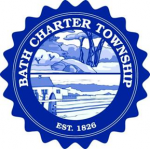Assessing Facts
- The Assessed Value is one-half of the Assessor’s estimates of the market value of your property. This number does not affect your tax bill. This value may change by any amount each year.
- Taxable Value is the number that your property taxes are based on. This number is limited to an increase of 5% or the rate of inflation, whichever is less. New construction, or a sale in the previous year, may change the taxable value by more than the current limit of 5% or the rate of inflation.
- Sheds, decks, concrete, asphalt paving, pools, etc. are taxable items. There has been a misconception that if something is not attached to your home it is not taxable. If it adds value to the real estate, it is taxable.
- The sales used to determine the value of property does not include the price the bank pays for a property in a foreclosure situation. Sales from the bank to an individual are not used. Family sales are also not used. Only sales that are considered an Arms Length transaction are used. These would typically be sales between individuals each of whom is willing to buy or sell, and neither is under any undue influence to buy or sell. Only properties that sell are part of the analysis. Properties that have no sold have no bearing on determining value.
- For information regarding the appeal process to the Board of Review, please see the ‘Board of Review’ tab.
- If the Assessor discovers that there are items on your property that have no been accounted for, you may be reassessed for the value of those items and additional taxes may be charged as far back as 3 years.
- Since Proposal A was adopted in 1994, you cannot compare tax bills with your neighbors and expect them to be similar. Property taxes are now subject to many different factors and identical homes could have very different tax amounts.
- A new buyer is likely to pay more taxes than the previous owner. In some cases, much more. This is due to the uncapping of the taxable value the year following the sale. This means after the sale takes place, the taxable value will not be limited to an increase by the rate of inflation. It will automatically increase to whatever the Assessed Value is for that year. From that point on, the taxable value is again capped at the rate of inflation for as long as that person continues to be the owner. (Exceptions to that would be new construction, demolition, or an adjustment due to an appeal of some type.)
- The Assessor cannot change your taxes! The Assessor deals only with the value of the property. Taxes are voted, and there is no authority for anyone to change a tax rate. Anyone who files an appeal with the Board of Review or the Michigan Tax Tribunal will be appealing the value, not the amount of taxes.
